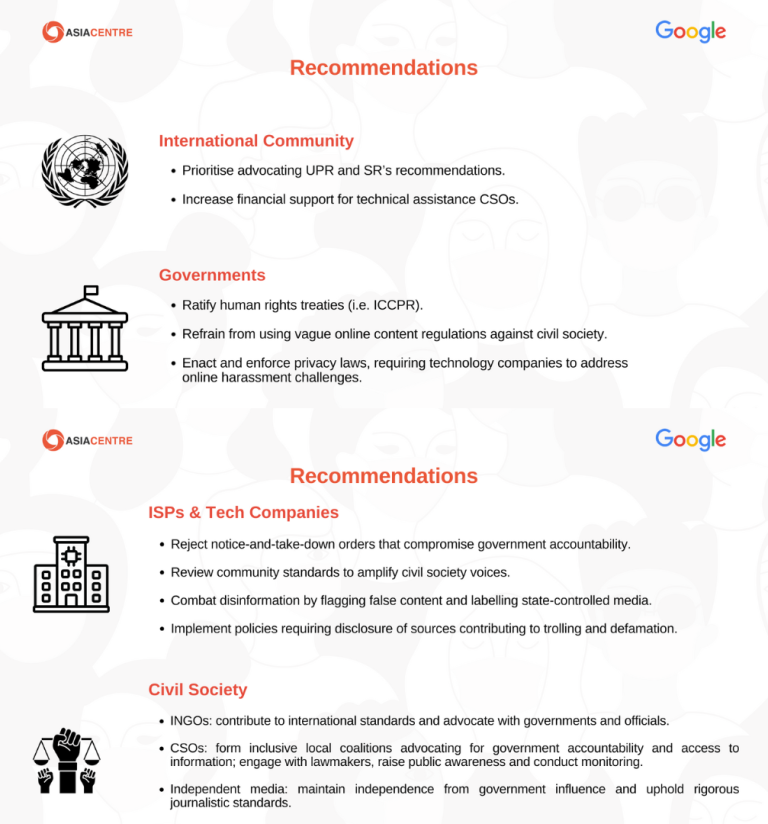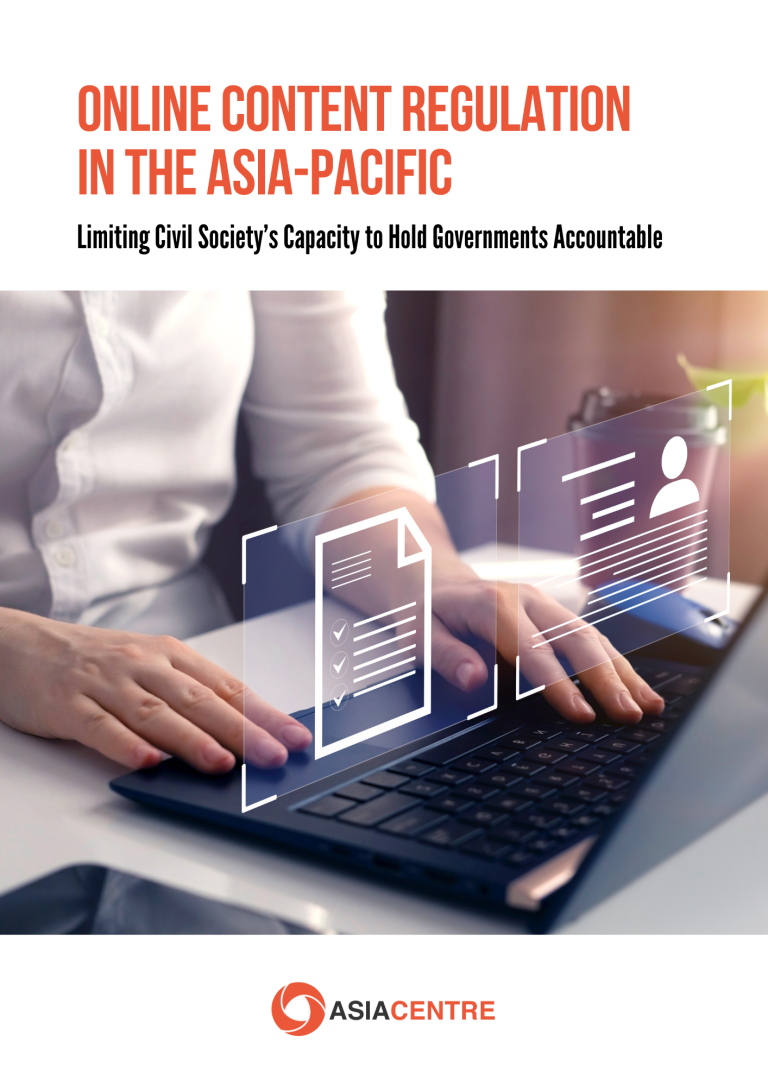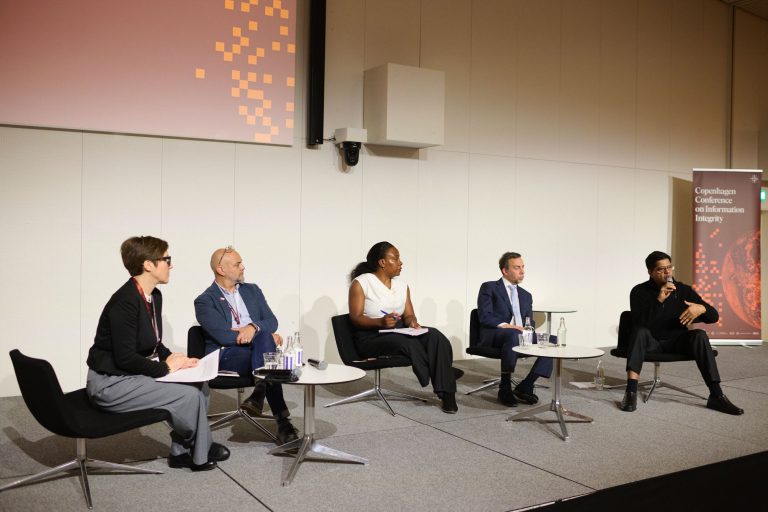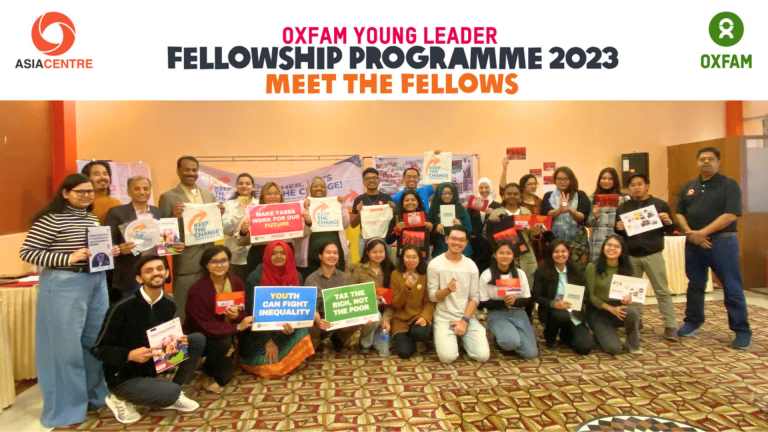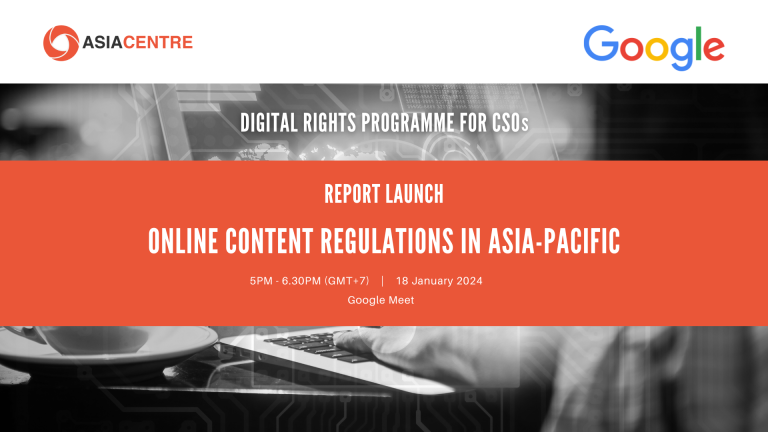
On 18 January 2024, Asia Centre held a virtual launch and discussion of its latest report, “Online Content Regulation in the Asia Pacific: Limiting Civil Society Capacity to Hold Government Accountable.” The report launch is part of the Digital Rights Programme for Civil Society Organisation, jointly organised by Asia Centre and Google Asia Pacific. The event drew over 50 participants, including members of academic institutions, representatives from civil society, lawyers and journalists.
In his welcome remarks, Dr. James Gomez, Regional Director of Asia Centre, highlighted that digital platforms not only change users’ behaviours but also the way in which CSOs operate, their point of view and interests. This includes how CSOs use digital space to hold governments accountable. Also delivering the welcome remarks was Chenie Yoon, Lead APAC Content Regulation, Google Asia Pacific, who highlighted that the primary role of digital platforms is to create a strong tool for civil society to communicate public opinion to the government. To that end, she said Google Asia Pacific, is pleased to support the advocacy work of CSOs through programmes such as that run by Asia Centre.
Kartini Sunityo, Programme Manager at Asia Centre, provided an overview of the Digital Rights Programme. She emphasised that the initiative focuses on creating a community for Civil Society Organization (CSO) members and offering them a learning platform to address issues related to Digital Rights in the region. The programme, as she outlined, includes a series of monthly online and onsite meetings throughout the year, featuring information-sharing, capacity-building, networking, and strategizing sessions.

Dr. Marc Piñol Rovira, Research Manager at Asia Centre, presented the findings of the report. He commenced by providing background information, noting that governments have adopted digital technology in governance but also enacted laws in areas where Civil Society Organizations (CSOs) might hold them accountable. He outlined the digital landscape and the shift towards user-generated content in Asia and how CSOs also utilised the digital sphere to advocate for public accountability.
Dr. Piñol Rovira outlined the categories of online content regulations in the Asia-Pacific that constrain CSOs’ work. These include Penal Codes and National Security Laws, Electronic and Computer Usage Laws, Fake News Laws, Laws on Service and Platform Providers, and Internet Infrastructure Laws. He said, these regulations impact civil society actors in various ways, such as criminalising criticism of policies, requesting compliance from ISPs and Tech Companies, internet shutdowns and gateways, cyber-trolling, and online hate sites. Such impacts have forced CSOs to resort to self-inhibiting behaviours. Towards the end of the presentation, Dr. Piñol Rovira provided recommendations to different stakeholders, including the international community, governments, ISPs and tech companies, and civil society.
Following the report presentation was a discussion around various international perspectives on the intersection of technology, government tactics, freedom of expression, and the role of tech companies in maintaining a free and safe digital sphere. In Vietnam, the tactics used by the government includes mass reporting, fake profiling, and spamming. In that regard, the need for technology companies to increase their social responsibility was highlighted. Another discussant shared the case of the social commentary Malaysian film “Mentega Terbang,” whose producer is currently being charged for producing content deemed controversial and religiously insensitive by the government. Through this example, the importance of online space for social change was emphasised. Taking New Zealand as an example, another discussion revolved around efforts to limit fake news on online platforms to stimulate public discussion – in this regard, the need for balancing freedom of expression with legal guidance was given importance. Discussants also brought into question the sincerity of tech companies’ attempts to facilitate a free and safe digital sphere for CSOs. Concern stems from tech companies’ business models which are based on exploiting user data; at the same time, there are instances of tech companies acquiescing to different government demands at the expense of rights for the sake of market expansion.
The event ended with thank-you remarks from Dr Gomez. He then invited participants to join the next online meeting for the Google Digital Rights Programme for Civil Society Organisations. The meeting titled “Fact-Checking: Is It Working?” is scheduled to take place on 21 March 2024.
Read and download the full report here.
For more information about the 21 March 2024 online meeting and how to join, click here.
Asia Centre is a civil society research institute in Special Consultative Status with the United Nations Economic and Social Council. It serves as a knowledge partner and undertakes evidence-based research as well as provides capacity-building training for end beneficiaries. If you would like to collaborate with the Centre, please send an expression of interest to contact@asiacentre.org.
Follow Asia Centre’s social media channels for more information.

